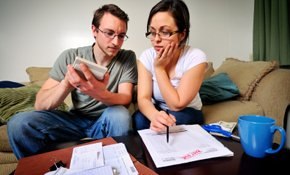70% say men and women equally affected by recession, but one in five says women hardest hit
Both men and women have been equally affected by the recession and government spending cuts, the majority of British people feels, but a significant 19% says that women have been hit harder than men, compared to just 6% who feel men have been hardest hit.
Our poll for the Sunday Times has found that while just under three quarters believe that both sexes have been equally hard hit, an interesting minority viewpoint emerges when considering the perceived positions of men and women specifically. Of those who feel one of the sexes has been hit harder than the other, there is general agreement that women have suffered more, with women in this minority group almost twice as likely as men to say that women have been hit hardest.
- 70% of British people think both men and women have been hit hardest by the recession and cuts in government public spending
- However, 19% say that women have been hit harder than men
- 6% say that men have
- More women than men believe they have been hit harder by the recession, with a quarter (25%) of women saying that they have (compared to 2% of women who think men have)
- And 12% of men say that women have been hit the hardest (compared to 10% who think that men have)
- 26% of Labour voters and 24% of Liberal Democrats say that women have been hit harder than men, compared to just 13% of Conservative voters
‘The drying up of progress?’
In recent years, the recession and the subsequent cuts in public spending have widely been cited as adversely affecting women in comparison to men, since women are overall more likely to be lower-paid, work part-time or take on less-skilled roles, while relying more heavily on childcare and other public services vulnerable to cuts.
The slow recovery post-recession is said to have affected women more than men, although some argue that men were hit harder when the initial situation broke. In September this year, the Financial Times reported that the numbers of unemployed men ‘peaked in August 2009 and has since dropped by 6%’, yet unemployment among women has risen by 13% to the highest level in twenty years.
One explanation could be that cuts to the public sector have been severe.
Professor Paul Gregg, from Bristol University, told the Financial Times that ‘the decline in the employment rate during the recession was 2%, so a sector losing [7%] of its employment is a big shock’. He continued that ‘we might see the drying up of the progress women have been making in securing top well-paid employment’ as similar progress in the private sector is ‘not guaranteed’.









